Faculty Members
Dir. PD Ao. Univ.-Prof. Mag. Dr. Wolfgang Neubauer
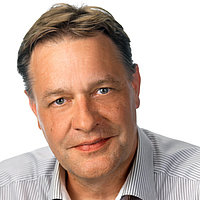
Speaker of the IC-ArchPro
Wolfgang Neubauer studied Prehistoric Archaeology, Mathematics, Archaeometry and Computer Science at the University of Vienna and at the Vienna University of Technology. He specialised in archaeological prospection, digital documentation and virtual reality visualisation of archaeological heritage. He obtained a PhD at the University of Vienna based on his thesis “Magnetic Prospecting in Archaeology”. Since 1995 he is engaged in teaching at the University of Vienna, the University of Innsbruck and the FH Mainz, especially presenting his respective fields of research (geophysical prospection, stratigraphy, GIS, statistics) and his practical experience to the next generation of researchers. In 2008 he received the venia docendi at the Institute for Prehistory and Early Medieval History of the University Vienna on his postdoctoral lecture qualification (Habilitation) “Interdisciplinary Field Archaeology”. All throughout his career he integrated students and post-docs into contract work and his research projects, for the dissemination of the new technological developments, the development of the young researchers’ practical skills and their career development alike.
At present he is part-time engaged as Ao.Univ.-Prof. at the ![]() Vienna Institute for Archaeological Science, an excellence research platform at the University of Vienna directing the
Vienna Institute for Archaeological Science, an excellence research platform at the University of Vienna directing the ![]() Department for Geophysical Prospection, Geodesy and Photogrammetry and director of the
Department for Geophysical Prospection, Geodesy and Photogrammetry and director of the ![]() Ludwig Boltzmann Institute for Archaeological Prospection and Virtual Archaeology (LBI) in Vienna.
Ludwig Boltzmann Institute for Archaeological Prospection and Virtual Archaeology (LBI) in Vienna.
Wolfgang Neubauer has been conducting archaeological research on sites all over the world for more than 25 years and has co-ordinated many national and international research projects. His main research from 1985 to present focused on the application of non-destructive prospecting methods in archaeology and will be extended and enhanced by an ambitious research programme of the LBI, forming the main background for his engagement within the proposed IC. The planned LBI research projects and surveys cover a wide range of archaeological problems and sites from all prehistoric and historic periods. Through application of the latest technological developments, by conducting basic research and driving an innovative development of new technologies applicable to archaeological problems, this framework perfectly permits the integration of young researchers.
Univ.-Prof. Mag. Dr. Michael Doneus
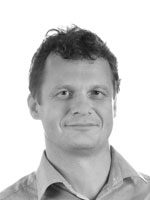
Michael Doneus has a long track record of national and international teaching experience at universities, workshops, seminars and summer schools. Since 1992 he is being employed at the ![]() Institute for Prehistoric and Medieval Archaeology (Institut für Ur- und Frühgeschichte) at the University of Vienna. He is the director of the aerial archive at this department and has 18 years of experience in archaeological remote sensing. He has specialised on the technical aspects of aerial archaeology, airborne laser scanning (ALS), photogrammetry, surveying and GIS. His main focus is the development of new techniques and methodologies and their application to archaeology within the conceptual framework of landscape archaeology. Recently he received the venia docendi at the Department for Prehistoric and Medieval Archaeology of the University of Vienna on his postdoctoral lecture qualification (Habilitation) on landscape archaeology. Michael Doneus has an international reputation as long-term committee member of the Aerial Archaeology Research Group, and as Secretary General of CIPA, the ICOMOS & ISPRS committee for the Documentation of Cultural Heritage.
Institute for Prehistoric and Medieval Archaeology (Institut für Ur- und Frühgeschichte) at the University of Vienna. He is the director of the aerial archive at this department and has 18 years of experience in archaeological remote sensing. He has specialised on the technical aspects of aerial archaeology, airborne laser scanning (ALS), photogrammetry, surveying and GIS. His main focus is the development of new techniques and methodologies and their application to archaeology within the conceptual framework of landscape archaeology. Recently he received the venia docendi at the Department for Prehistoric and Medieval Archaeology of the University of Vienna on his postdoctoral lecture qualification (Habilitation) on landscape archaeology. Michael Doneus has an international reputation as long-term committee member of the Aerial Archaeology Research Group, and as Secretary General of CIPA, the ICOMOS & ISPRS committee for the Documentation of Cultural Heritage.
In 2010 he became vice-director and key researcher (programme line “airborne remote sensing” at the ![]() Ludwig Boltzmann Institute for Archaeological Prospection and Virtual Archaeology in Vienna. His contribution to the IC for Archaeological Prospection will be within his key fields of research: aerial archaeology, airborne laser scanning, airborne hyper-spectral scanning and landscape archaeology.
Ludwig Boltzmann Institute for Archaeological Prospection and Virtual Archaeology in Vienna. His contribution to the IC for Archaeological Prospection will be within his key fields of research: aerial archaeology, airborne laser scanning, airborne hyper-spectral scanning and landscape archaeology.
In 2012 he became the director of ![]() VIAS - Vienna Institute for Archaeological Science.
VIAS - Vienna Institute for Archaeological Science.
Dir. Univ.-Prof. Dr. Falko Daim
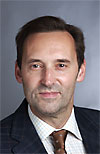
Born and studied in Austria/Vienna Falko Daim has become general director of the ![]() RGZM in Mainz/Germany (2003), an internationally recognised research institute for archaeology, exploring, cultural historical questions, concentrating on landscape and environmental archaeology, within the broader framework of the projects and research of the individual departments. Falko Daim holds a graduate degree of the University of Vienna, where he also started his career as assistant 1979. In 1986 he wrote his 'habilitation' on 'The Awaric Burial Ground of Leobersdorf', Lower Austria. He gained a lecture seat at the University of Vienna (1992) and became professor in January 2000. Next to his teachings in Austria during his career he was also visiting professor at the University of Graz, Austria (1987/88), Innsbruck (1992), Izevsk, Russia (1990, 1992) Ljubljana, Slovenia (1992), Bratislava, Slovakia (1993), Los Angeles, USA (1998), Xi'an, China (2000), and Bucharest, Romania (2002). In 2006 Falko Daim was appointed honorary member of the Archaeological Institute of the Romanian Academy of Sciences. For his excellent research programmes including major projects in Austria (Zaingrub, Leobersdorf, Droesing, Zillingtal) and overseas (Slovenia, Hungary, Albania, China, Slovakia, Germany, Romania, Ukraine) he was honoured with several prizes and awards like the 'Böhlau Wissenschaftspreis' and the 'Kardinal-Innitzer-Förderungspreis' to name but a few. Over a period of 40 years Falko Daim influenced and shaped the archaeological community in Central Europe with excellent research and fundamental support in the fields of early and medieval archaeology, landscape- and environmental- archaeology, archaeological prospection, GIS-applications, metallurgy. Director Falko Daim is member of the German Archaeological Institute (Berlin), of the Roman-Germanic Commission (Frankfurt/Main), VIAS (Vienna), which he also served as president for several years, corresponding member of the Austrian Academy of Science and of the Austrian Archaeological Institute.
RGZM in Mainz/Germany (2003), an internationally recognised research institute for archaeology, exploring, cultural historical questions, concentrating on landscape and environmental archaeology, within the broader framework of the projects and research of the individual departments. Falko Daim holds a graduate degree of the University of Vienna, where he also started his career as assistant 1979. In 1986 he wrote his 'habilitation' on 'The Awaric Burial Ground of Leobersdorf', Lower Austria. He gained a lecture seat at the University of Vienna (1992) and became professor in January 2000. Next to his teachings in Austria during his career he was also visiting professor at the University of Graz, Austria (1987/88), Innsbruck (1992), Izevsk, Russia (1990, 1992) Ljubljana, Slovenia (1992), Bratislava, Slovakia (1993), Los Angeles, USA (1998), Xi'an, China (2000), and Bucharest, Romania (2002). In 2006 Falko Daim was appointed honorary member of the Archaeological Institute of the Romanian Academy of Sciences. For his excellent research programmes including major projects in Austria (Zaingrub, Leobersdorf, Droesing, Zillingtal) and overseas (Slovenia, Hungary, Albania, China, Slovakia, Germany, Romania, Ukraine) he was honoured with several prizes and awards like the 'Böhlau Wissenschaftspreis' and the 'Kardinal-Innitzer-Förderungspreis' to name but a few. Over a period of 40 years Falko Daim influenced and shaped the archaeological community in Central Europe with excellent research and fundamental support in the fields of early and medieval archaeology, landscape- and environmental- archaeology, archaeological prospection, GIS-applications, metallurgy. Director Falko Daim is member of the German Archaeological Institute (Berlin), of the Roman-Germanic Commission (Frankfurt/Main), VIAS (Vienna), which he also served as president for several years, corresponding member of the Austrian Academy of Science and of the Austrian Archaeological Institute.
One of his great aims and efforts is the support of young researchers and scientists, to whom he not only offers financial support but also the use of the comprehensive facilities at the RGZM, including the library, the photo archive and the online database.
Since his position as general director at the RGZM Falko Daim founded and supported major projects in the field of archaeological prospection and GIS-application, landscape- and environmental- archaeology, metallurgy and restoration, bringing together excellence research teams from all over the world, gaining for the best results possible.
Univ.-Prof. DI Dr. Wolfgang Kainz
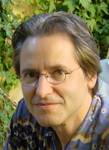
Since 2002 Wolfgang Kainz is full professor of Cartography and Geographic Information Science at the ![]() Department of Geography and Regional Research of the University of Vienna, Austria. Prof. Kainz holds a graduate degree in technical mathematics and computer science, and a Ph.D. from Graz University of Technology, Austria. Previously he has held positions as researcher at the Institute for Digital Image Processing and Computer Graphics of the Joanneum Research Center, Graz, Austria (1981-1987) as assistant professor at the University of Vienna, Austria (1987-1992), as a full professor of spatial information theory at the International Institute for Geo-information Science and Earth Observation (ITC) (1992-2002) and as an adjunct professor of GIS at the University of Twente, The Netherlands (2000-2002). Prof. Kainz was visiting professor at the University of Maine at Orono (USA), State University of Sao Paulo at Presidente Prudente (Brazil), Kuwait University (Kuwait), the Chinese Culture University (Taipei, Taiwan), and Masaryk University (Brno, Czech Republic). In 2006 Prof. Kainz was appointed honorary professor of cartography and GIS at the Chinese Academy of Surveying and Mapping (CASM) in Beijing.
Department of Geography and Regional Research of the University of Vienna, Austria. Prof. Kainz holds a graduate degree in technical mathematics and computer science, and a Ph.D. from Graz University of Technology, Austria. Previously he has held positions as researcher at the Institute for Digital Image Processing and Computer Graphics of the Joanneum Research Center, Graz, Austria (1981-1987) as assistant professor at the University of Vienna, Austria (1987-1992), as a full professor of spatial information theory at the International Institute for Geo-information Science and Earth Observation (ITC) (1992-2002) and as an adjunct professor of GIS at the University of Twente, The Netherlands (2000-2002). Prof. Kainz was visiting professor at the University of Maine at Orono (USA), State University of Sao Paulo at Presidente Prudente (Brazil), Kuwait University (Kuwait), the Chinese Culture University (Taipei, Taiwan), and Masaryk University (Brno, Czech Republic). In 2006 Prof. Kainz was appointed honorary professor of cartography and GIS at the Chinese Academy of Surveying and Mapping (CASM) in Beijing.
Wolfgang Kainz has 30 years of experience in geographic information science in academia, research, and consulting. His research interests are in GIS theory, spatial databases, fuzzy logic, e-government and geo-data policy. Prof. Kainz is member of the German Cartographic Society, the Austrian Society for Surveying and Geoinformation, the Austrian Geographical Society, and the Austrian Computer Society. He is board member of the Austrian Geographical Society, the Austrian Society for Surveying and Geoinformation, and Chair of the Cartographic Commission in the Austrian Geographical Society. From 2004 to 2008 he served as the President of the ISPRS Technical Commission II “Theory and Concepts of Spatio-temporal Data Handling and Information”. Currently he is member of the International Scientific Advisory Committee of the ISPRS, and member of the editorial board of the “International Journal of Image and Data Fusion” and the “Kartographische Nachrichten”.
Univ.-Doz.Dr. Wolfgang Lenhardt
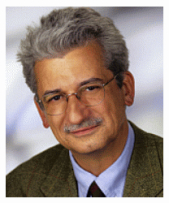
Wolfgang Lenhard studied Geophysics at the University of Vienna. Between 1985 and 1991 he was in charge of the Rockburst Research Project at the gold mine Western Deep Levels Ltd. in South Africa. During that time he developed methods to investigate causes and effects of rockbursts. He is specialised in induced seismicity and designed the earthquake hazard map of Austria. Since 1991 he is employed ay the ![]() Zentralanstalt für Meteorologie und Geodynamik (ZAMG) where he today heads the department of geophysics. Lenhardt represents the ZAMG or Austria in several international associations, such as the European Seismological Commission (ESC), as member of the board of directors of the Observatories and Research Facilities for European Seismology (ORFEUS) and as president of the Austrian Geophysical Society. He is consultant to the Austrian Institute of Standards (ON) and member of the Austrian Geodetic Commission. Lenhardt lectures at the Mining University in Leoben and at the University of Vienna.
Zentralanstalt für Meteorologie und Geodynamik (ZAMG) where he today heads the department of geophysics. Lenhardt represents the ZAMG or Austria in several international associations, such as the European Seismological Commission (ESC), as member of the board of directors of the Observatories and Research Facilities for European Seismology (ORFEUS) and as president of the Austrian Geophysical Society. He is consultant to the Austrian Institute of Standards (ON) and member of the Austrian Geodetic Commission. Lenhardt lectures at the Mining University in Leoben and at the University of Vienna.
The team ZAMG Archeo Prospections®, directed since 2010 by Lenhardt, contributed with the development of equipment, logistics and software for high-resolution geophysical prospecting of archaeological sites, and has carried out more than 200 archaeological geophysical field surveys in Austria and abroad. The main developments have been and are in the field of multi-sensor caesium, 3D processing and interpretation of ground penetrating radar. Many outstanding results have been presented in form of invited papers on many international conferences and in peer reviewed international journals. Lenhardt will contribute to the theoretical and practical aspects of applied geophysics, especially the natural science and technical aspects of the respective fields of research. The close collaboration with the team ZAMG Archeo Prospections® will provide a perfect framework for PhD students to obtain insight into the daily work and future needs of professional geophysical prospection for archaeological applications.
PD Mag. Dr. Erich Draganits
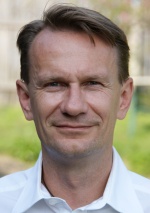
Erich Draganits studied Geology and Prehistoric Archaeology at the University of Vienna. Within the Earth Sciences he is specialised in clastic sedimentology, deformation of sediments, landscape evolution and Earth surface processes. In 2000 he received a PhD from the University of Vienna with the thesis “The Muth Formation in the Pin Valley (Spiti, N-India): Depositional Environment and Ichnofauna of a Lower Devonian Barrier Island System”. His working experience includes 6 years in the Institute of Engineering Geology at the Vienna University of Technology and more than 6 years in the ![]() Department of Geodynamics and Sedimentology at the University of Vienna, where he received the venia docendi for his postdoctoral lecture qualification (Habilitation) “Deformationsstrukturen in unverfestigten, klastischen Sedimenten”. Since 2001 he has been teaching in 3 different faculties in 2 Universities. Besides Austria, his main areas of geological fieldwork include Italy, Greece and India. Additionally, he has been involved in numerous archaeological excavations of diverse sites, periods and countries for 25 years. Based on his education and career the research interests of Erich Draganits include a distinct geoarchaeological concern, based on interdisciplinary research and integration of state-of-the-art-methods.
Department of Geodynamics and Sedimentology at the University of Vienna, where he received the venia docendi for his postdoctoral lecture qualification (Habilitation) “Deformationsstrukturen in unverfestigten, klastischen Sedimenten”. Since 2001 he has been teaching in 3 different faculties in 2 Universities. Besides Austria, his main areas of geological fieldwork include Italy, Greece and India. Additionally, he has been involved in numerous archaeological excavations of diverse sites, periods and countries for 25 years. Based on his education and career the research interests of Erich Draganits include a distinct geoarchaeological concern, based on interdisciplinary research and integration of state-of-the-art-methods.
PD Dipl. geophys. Dr. Immo Trinks
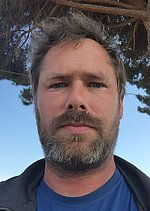
Immo Trinks studied geophysics at Ludwig Maximilian University of Munich and Kiel University. Between 1992 and 2000 he worked with the pioneering archaeological prospection teams of the Bavarian State Department for the preservation of monuments, the applied geophysics group of Kiel University, and the archaeological prospection experts from VIAS/ZAMG. In 2004 he obtained a PhD in exploration geophysics from Cambridge University as recipient of a LITHOS scholarship and a Selwyn College Cambridge studentship. Since 2005 he established a geophysical archaeological prospection unit within the Swedish Central National Heritage Board in close collaboration with the Viennese experts. He conducted some 60 geophysical archaeological prospection surveys in Sweden, Norway, the Netherlands, and on Cyprus, and introduced high-resolution geophysical prospection methods into Scandinavian archaeological research and contract archaeology.
In 2008/2009, he contributed substantially to the successful formulation of the proposals for a new Ludwig Boltzmann Institute for Archaeological Prospection and Virtual Archaeology (LBI ArchPro) and recruited several partner organisations. In 2010 he was employed at the LBI ArchPro as Key-researcher for geophysical archaeological prospection, since 2012 as Head of Research and Development, and since 2017 as Deputy Director. He has taught 20 academic courses in geophysical archaeological prospection in theory and practice at the University of Vienna since 2011. In December 2016 he received his Habilitation in Near-surface geophysics at TU Wien. His research interests are the development and exemplary application of novel efficient, large-scale, high-resolution, subsurface and underwater imaging technologies for archaeological, geological and enginnering applications.
Universität Wien
co Vienna Institute for Archaeological Science
Franz-Klein-Gasse 1/III
A-1190 Wien
T: +43-1-4277-40304




